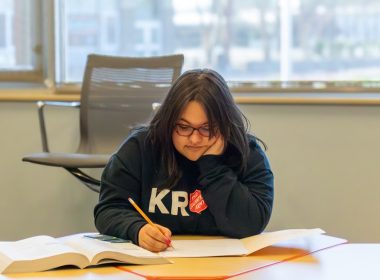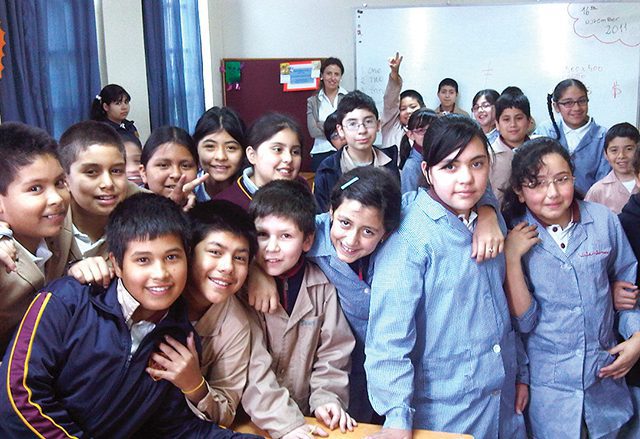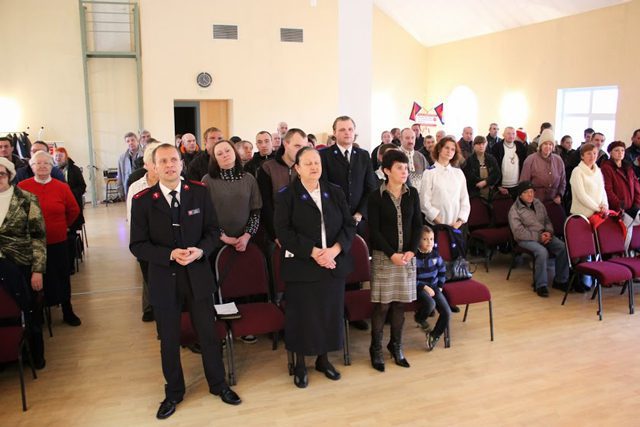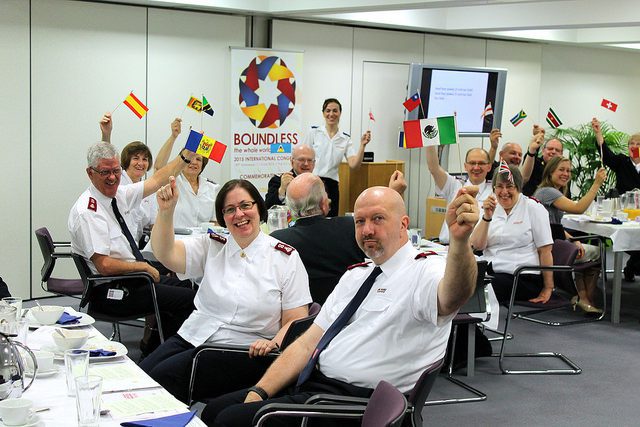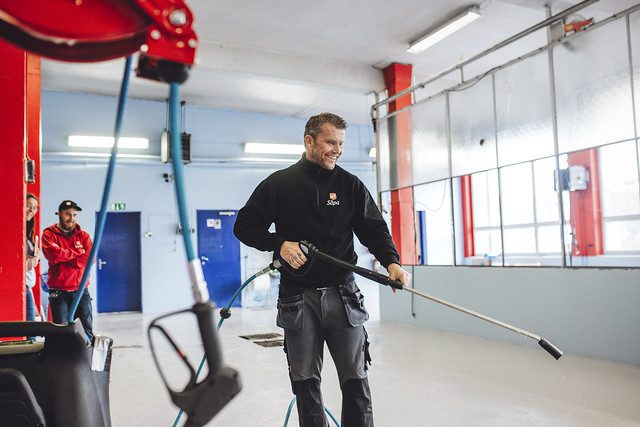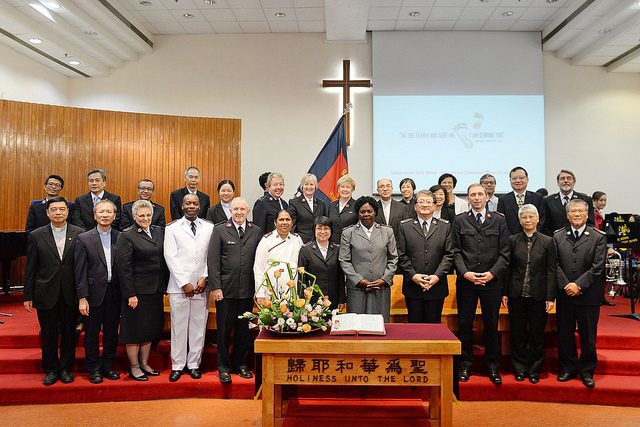Implementing an International School Strategy
By Christin Davis –
Across the world, more than 600,000 children attend and 20,000 teachers teach in one of The Salvation Army’s nearly 3,000 schools. From International Headquarters in London, Howard Dalziel overseas this educational arm of the organization as the international schools coordinator, helping to implement the International Schools Strategy. In each school, the Army seeks to develop compassionate children of integrity and character. In an interview with New Frontier Chronicle, Dalziel explains.
 NFC: Why is education important to The Salvation Army?
NFC: Why is education important to The Salvation Army?
Dalziel: Education is a fundamental right that those who are most marginalized do not always have access to. We believe that where we have the opportunity to offer education to marginalized groups we should provide education that will enable them to achieve their God-given potential in a caring supportive and nurturing environment.
What is your role as the International Schools Coordinator at International Headquarters, and what led you to this role?
My role is to raise awareness of the support that we can offer strategically through the international schools strategy so that schools coordinators, Army leaders, and those working in schools are aware of our vision and guiding principles. It is also important that education best practice is shared, and that those who wish to support schools projects are linked to the appropriate donor offices or practitioners. We at IHQ work with those who support schools programs through technical or financial support.
I came to the role as a school teacher who had worked both in the UK and internationally and passionately believed in the power of schools to transform lives of pupils, their families and their communities.
What is your personal philosophy regarding education, and how does that impact your work?
My personal philosophy revolves around achieving God-given potential and ensuring that schools provide a nurturing framework that enables students to learn, play and grow spiritually in an environment where all children feel safe and protected and are able to develop character that will enable them to be compassionate individuals of integrity
What is The Salvation Army’s International Schools Strategy?
It is a framework that explains our vision, our guiding principles, and outlines the six focus areas that we believe are essential for the delivery of high quality education.
Why was it developed, and what outcomes have you seen from it?
It was developed to support those working with schools. There is such a wide variety of types of school in so many cultural contexts that it is important that the identity of a Salvation Army school is clarified. It is important that those working in schools recognize that they are supported and appreciated.
 In visiting Salvation Army schools around the world, can you talk about a visit that stands out to you?
In visiting Salvation Army schools around the world, can you talk about a visit that stands out to you?
I have been impressed in so many situations, and each visit I make shows me the level of dedication from teachers, officers, parents, and friends of Salvation Army schools. My most recent visit was Guatemala where the school is literally a safe haven. Children are able to learn and play in safety. They are part of a community that cares for them, and builds their character. The teachers work incredibly hard in the face of adversity and Salvation Army officers dedicate their lives to improving the educational experience and spiritual support for children from vulnerable, broken communities.
Speaking broadly, what are Salvation Army schools’ strengths, and where is there room for improvement?
Our strength is in our people, their dedication, their vision, their ability to develop relationships with community leaders, with parents, their ability to use such an extensive footprint to educate marginalized children.
We want to continue to ensure that we improve our infrastructure. We need to continue to access funds locally where possible, and continue to support these efforts through international funds where this is appropriate. We need to ensure that we focus on quality teaching and that we give teachers the opportunity to develop their teaching skills further. This is a continual process.
____________________________
International Schools Strategy focus areas
- Providing quality education, which leads to high achievement for all
- Relationships and partnerships
- Improving infrastructure and maximizing resources
- Developing a plan for sustainability
- Continually improving the quality of teaching staff and management systems
- Developing minimum standards and guidelines on child safety and protection
- See more at salvationarmy.org/ihq/schoolsstrategy


